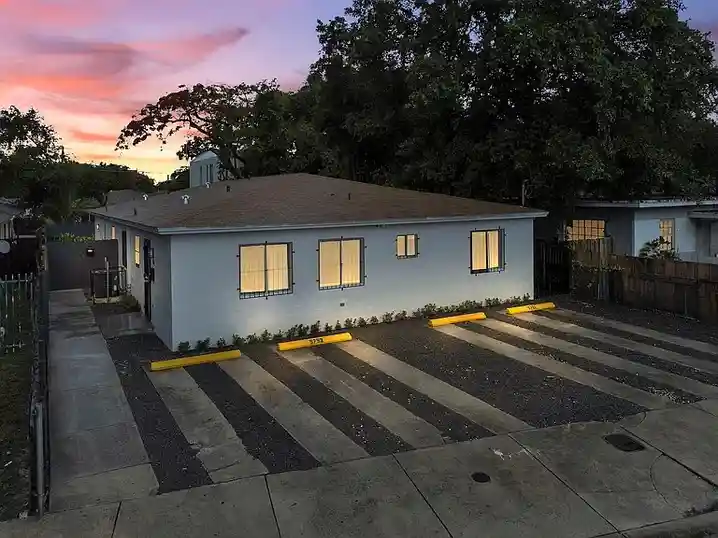Disagreements over where your property ends and your neighbor’s begins aren’t just uncomfortable—they can turn into serious legal headaches if not handled properly. One of the most common questions homeowners ask is: in a property line dispute, who pays for the land survey?
It’s not a one-size-fits-all answer, but if you’re navigating a property boundary disagreement, understanding the process—and who foots the bill—can save you time, money, and future conflict.
Let’s break it down from the perspective of a real estate professional.
—
What Triggers a Property Line Dispute?
Boundary disputes can start with something as minor as a misplaced fence or a new shed. They often stem from:
- Old or vague property deeds
- Overlapping landscaping or tree lines
- Disagreements about easements or shared access
- Mismatched assumptions from neighbors
- Unrecorded improvements or encroachments
When neighbors can’t agree on the actual property lines, a professional survey becomes the go-to solution.
—
What Does a Land Survey Do?
A land survey maps out the legal boundaries of your lot using historical data, deed records, and modern measuring tools. It establishes where your property legally begins and ends—and most importantly, where your neighbor’s does too.
A licensed land surveyor uses professional-grade equipment to mark these lines clearly, sometimes even placing physical markers along the perimeter.
In the eyes of the law and real estate professionals, a survey holds significant weight. It’s often the key to resolving disputes before they go to court.
—
Who Pays for the Survey in a Property Line Dispute?
Here’s where things can vary depending on the situation:
1. You Initiate the Survey
If you believe your neighbor has built something on your land—or if you’re simply unsure about your own boundaries—and you hire the surveyor, then yes, you’re generally responsible for paying the cost.
The good news? You’ll have a legal document in hand to back your position, whether you’re simply having a conversation or escalating the issue legally.
Typical cost for a residential boundary survey ranges from $400 to $1,200 depending on property size and terrain.
📝 Tip: Always ask your surveyor to provide a certified drawing. It’ll be crucial if legal questions come up.
—
2. Both Neighbors Agree to Resolve the Dispute
In the best-case scenario, both parties recognize the confusion and want to settle it calmly. In this case, neighbors may choose to split the cost of the survey 50/50.
This often happens when:
- A fence is being replaced
- Landscaping overlaps
- Both homeowners want clarity before selling or building
If you’re considering a cooperative approach, a simple written agreement can help confirm cost-sharing and survey access on both sides.
—
3. The Dispute Goes to Court
If you end up in legal proceedings, the judge may order a new survey. Depending on the outcome, the court can assign survey fees to one party or require both to split the expense.
Keep in mind: legal costs are often significantly higher than survey fees. That’s why many real estate agents and attorneys recommend resolving disputes through mutual agreement or mediation whenever possible.
—
Why You Shouldn’t Skip the Survey
Putting off a boundary survey during a dispute can lead to:
- Costly legal battles
- Reduced property value
- Delays in selling or refinancing
- Title complications
- Strained neighbor relationships
In fact, title companies often require recent surveys before closing, especially if encroachments or easements are present.
If you’re planning any kind of addition—like a garage, driveway extension, or shed—it’s smart to confirm your boundary lines before investing.
—
How Real Estate Agents Handle These Issues
As agents, we often see transactions stall or fall apart due to unresolved property line questions. Buyers want clarity. Sellers need clean titles. And mortgage lenders won’t move forward unless the boundary is clearly documented.
When preparing to sell, homeowners are advised to provide recent survey documentation upfront. It builds trust and reduces surprises.
—
What If the Neighbor Refuses to Cooperate?
If your neighbor refuses to split costs or allow access for the surveyor, don’t panic. You still have the right to survey your own property. Surveyors are trained to work around tight boundaries and can often complete the job with minimal disruption.
Should the matter escalate, speak with a real estate attorney about your legal options. In most jurisdictions, the property owner initiating the survey has the right to proceed, and if encroachment is found, you may be entitled to legal remedies.
—
Conclusion: Know Your Rights, Protect Your Investment
So, who pays for the survey in a property line dispute? It depends on who initiates it, whether both parties are cooperative, and how far the dispute escalates.
In most cases, if you request the survey, you’ll pay for it. But when neighbors agree to resolve things amicably, it’s fair to share the expense. And if courts get involved, a judge may decide.
No matter the situation, don’t ignore a boundary issue. A survey is a small investment compared to the long-term cost of unresolved property conflict.
—
Want help navigating your property boundary concerns or getting a trusted local surveyor? Contact a licensed real estate professional in your area who specializes in residential property rights.
